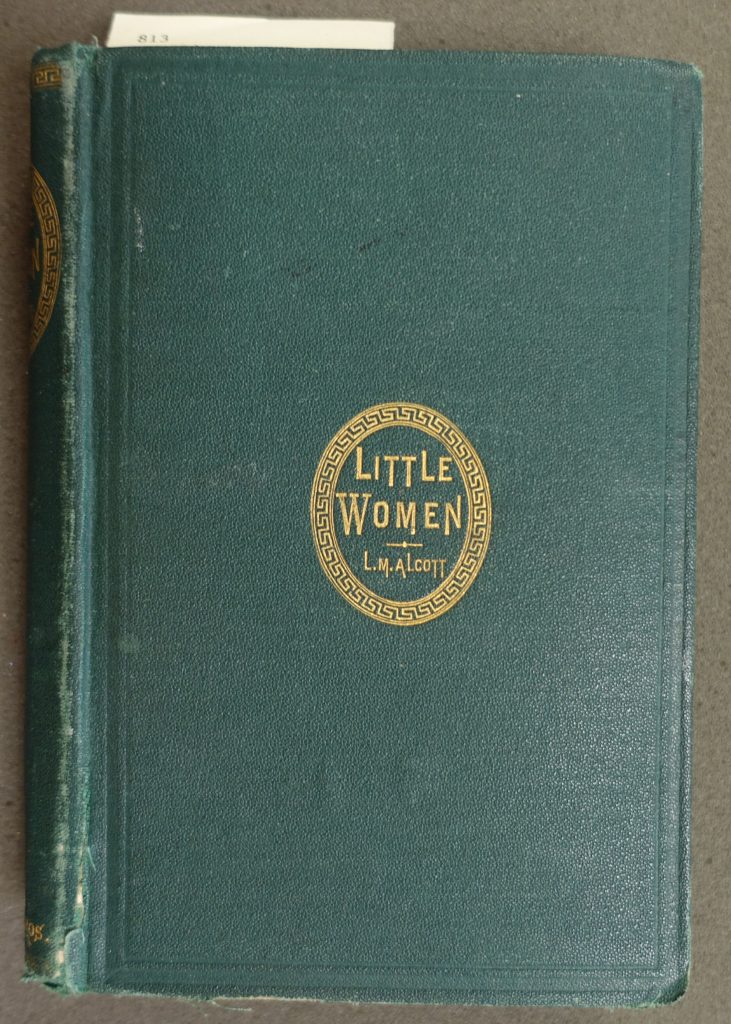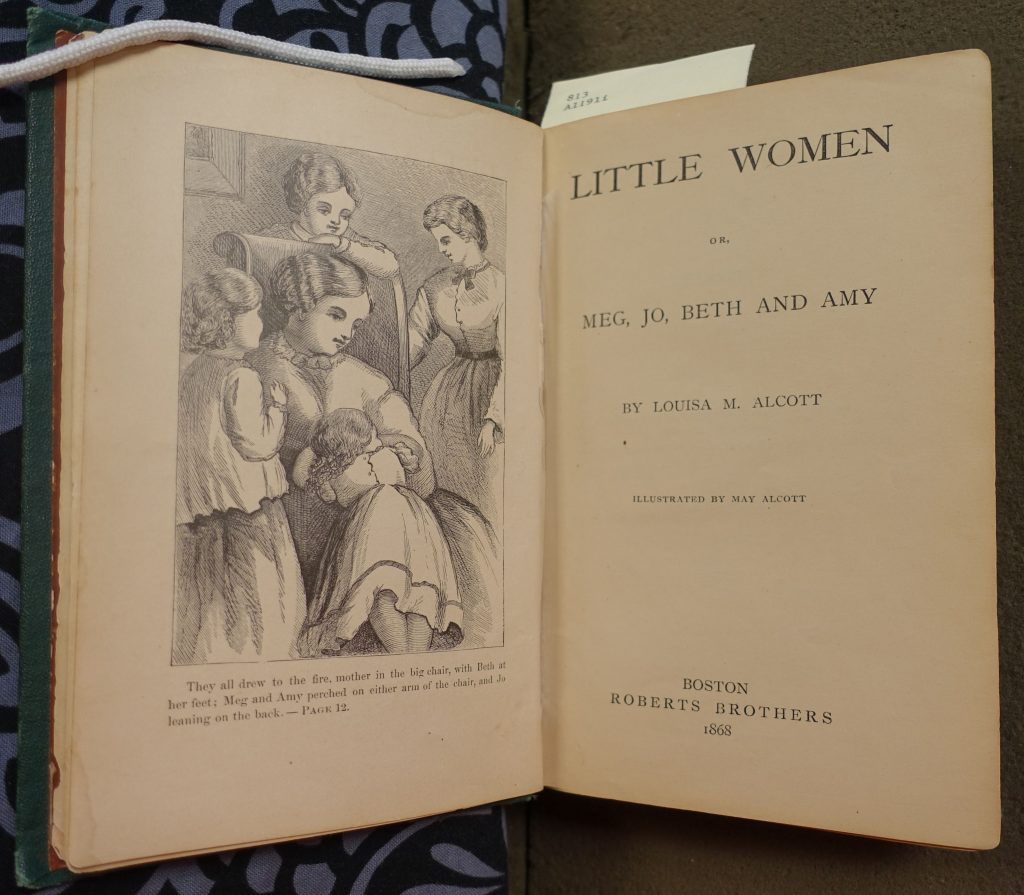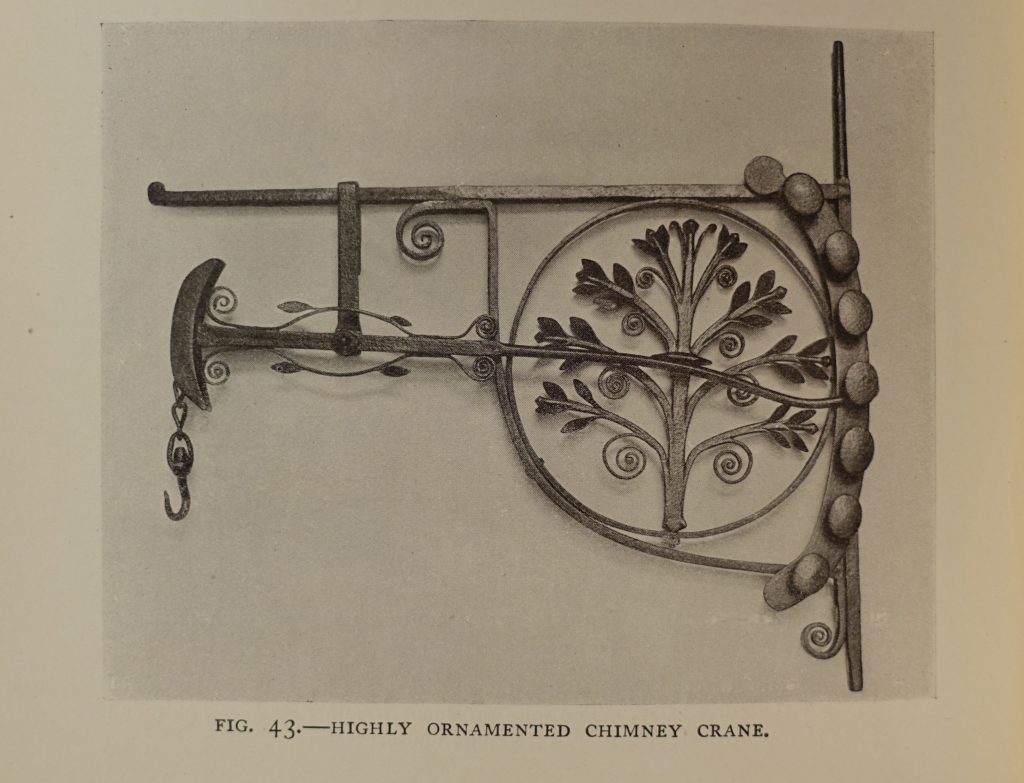This week, we will be highlighting four women authors from our collection in honor of their birthdays. These authors wrote on a range of subjects, from gardening to slavery, and show the many different areas in which the Rare Book and Manuscript Library holds important histories.

Born on this day in 1832, Louisa May Alcott was an author and poet best known for her semi-autobiographical works about the March family. She was surrounded by transcendentalism during her childhood and early education in Concord, Massachusetts, but due to the family’s poverty she began working at an early age. Her parents were also involved with the Underground Railroad, and Alcott was an advocate for abolition and women’s suffrage her entire life; she was even the first woman to register to vote in her hometown. Her first published works were letters and observations from her time as a nurse during the Civil War, but she began writing novels under her own name and the pseudonym A. M. Barnard soon afterward.
Her most well-known work is Little Women: or Meg, Jo, Beth and Amy, which tells the story of the March sisters growing up in Orchard House. The book was published in two parts, part one following the childhood of the sisters and part two telling of their adventures into adulthood. Readers appreciated her candid and natural representation of women’s lives in fiction, and although Alcott wrote the book as children’s literature, its reach extends far beyond that scope. [Little women, or, Meg, Jo, Beth and Amy, by Louisa May Alcott; illustrated by May Alcott. 813 AL19LI]
Gertrude Jekyll was a British horticulturist and garden designer who was born on this day in 1843. Trained as an artist at a young age, Jekyll incorporated color, texture, and other artistic elements into her garden designs in ways that had not been previously practiced. She was not only concerned with the look of plants, however: she also made sure to understand the plants themselves and how they needed to be tended. Jekyll worked with architect Edwin Lutyens on many of her designs, and the pair were highly influential in the Arts and Crafts movement. By the time of her death, Jekyll had designed over 400 gardens; many have been lost over time, but several remain or have been restored.
In addition to her interest in gardening, Jekyll was interested in traditional and rural crafts in Britain, and worked to document and preserve 19th-century practices in the countryside. This figure comes from Old English Household Life, and shows an ornamental chimney crane from Jekyll’s own collection, held at the Guildford Museum. [Old English household life; some accounts of cottage objects and country folk, Gertrude Jekyll. 914.2 J38O]


I held off reading Little Women for years even though I was making may way through many of the classic titles. I wish I hadn’t. It’s a beautiful story and so well written. Deserving of the title of one of the best books ever written or read. I only put it off because of a misconception I had about the basic plot. Cheers. Dave
Yes. Excellent book. It’s required reading at my school and I was skeptical just based on the named. but it has a great scene that I recount many times in my life. I read it at the same time I read “Puddinhead Wilson” a short story by Twain and thought little women was actually better story. AMI